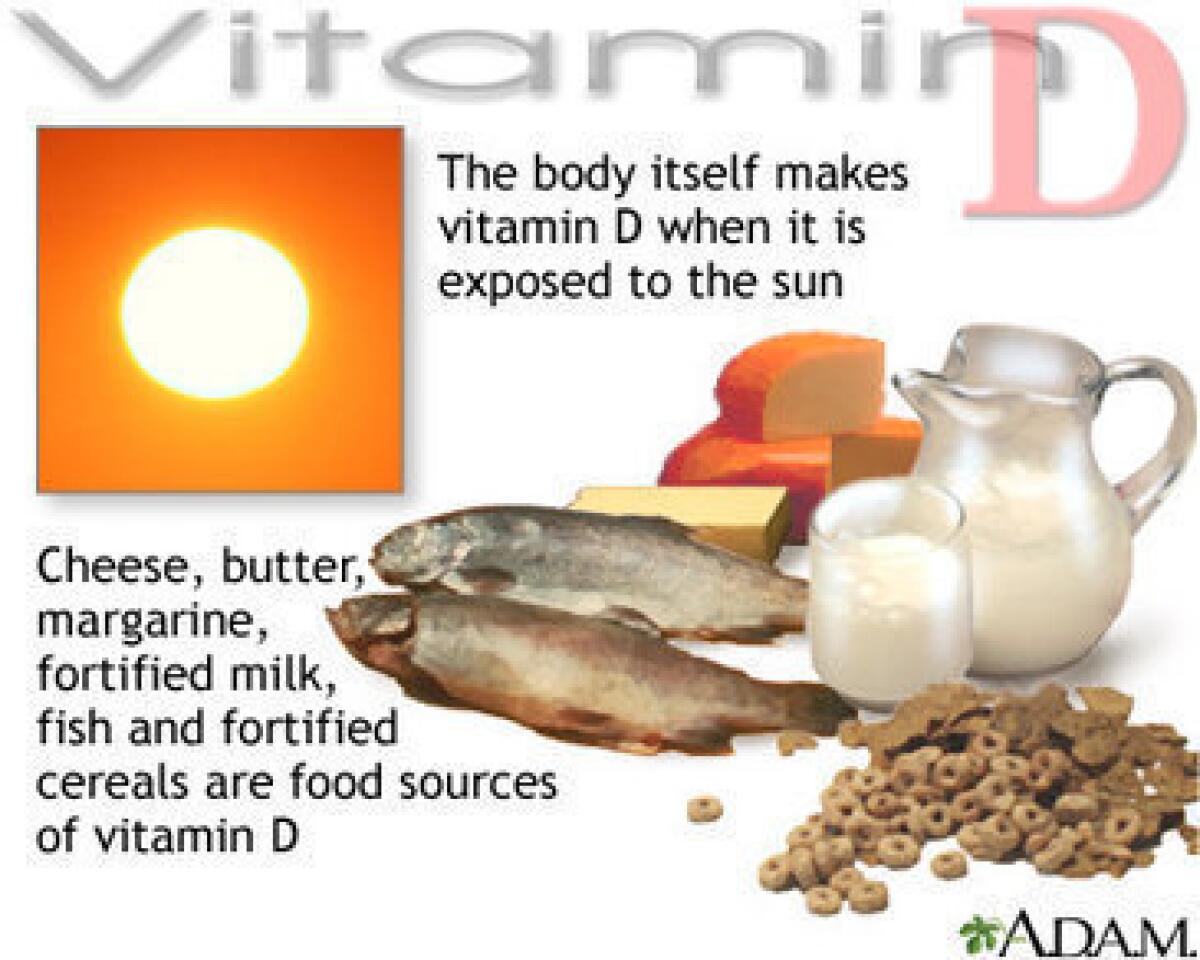Low levels of vitamin D in blood double risk of bladder cancer

Low levels of vitamin D in the blood double the risk of developing bladder cancer, Spanish researchers reported Wednesday. The low levels increase the risk of the most aggressive form of the disease almost six-fold, the researchers reported in the Journal of the National Cancer Institute.
Spain has about 11,000 new cases of bladder cancer per year, one of the highest rates in the world. The United States has about 73,500 new cases per year, with nearly 15,000 deaths. It is primarily a disease of the elderly, with nine out of 10 victims over the age of 55.
Low levels of vitamin D have previously been linked to increased risk of breast and colon cancer, but no one has studied the potential association with bladder cancer, according to Dr. Nuria Malats, a geneticist at the Spanish National Cancer Research Center.
The team collected blood samples from 1,125 patients with bladder cancer in 18 Spanish hospitals and from 1,028 individuals with no sign of the disease. They measured levels of 25-hydroxy-vitamin D3, the most stable form of the vitamin. The team found that those with the lowest levels of the vitamin were 1.83 times as likely to have bladder cancer as those with the highest levels. When the team separated out patients with the most aggressive form of invasive bladder cancer, they found that those with the lowest vitamin levels were 5.94 times as likely to develop the disease.
Molecular studies also showed that vitamin D regulates the production of a protein, FGFR3, that plays a role in bladder cancer. the risk of developing invasive bladder cancer was highest in patients with the lowest levels of the protein and the lowest levels of vitamin D.
âThese results indicate that high levels of the vitamin are associated with protection from the illness or, similarly, that low levels are associated with a higher risk of suffering from it,â Malats said.



